#eseo
Text




Noh Hyeon-jeong (Eseo) from ex-LUNARSOLAR
7 notes
·
View notes
Text
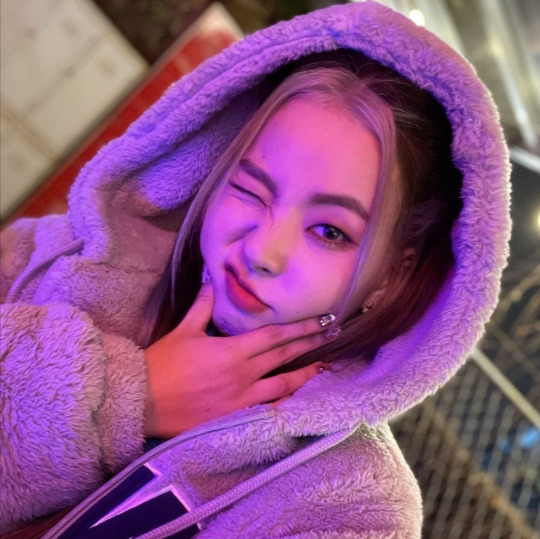

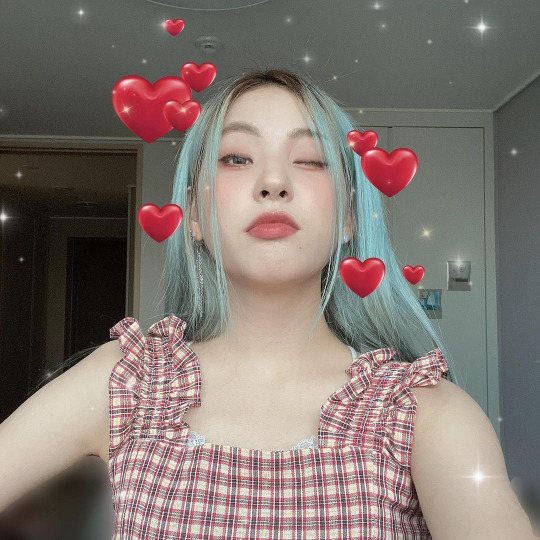



다다다다다 내 맘대로 해 EVERYBODY FOLLOW ME BABY ! ! !
-missing lunarsolar hours T^T
-like or reblog if saved/used!! >v<
#kpop layouts#gg layouts#kpop#kpop layout#eseo#noh hyunjung#eseo layout#lunarsolar layout#lunarsolar layouts#eseo layouts#girl group layouts#my layouts
5 notes
·
View notes
Text
I can't believe Lunarsolar have disbanded, I want to cry :(
I really just hope this was a mutual thing and all four of then are okay
3 notes
·
View notes
Text
happy B-Day 4th March to our pretty and cute Eseo, former LUNARSOLAR here right now !!!!!!
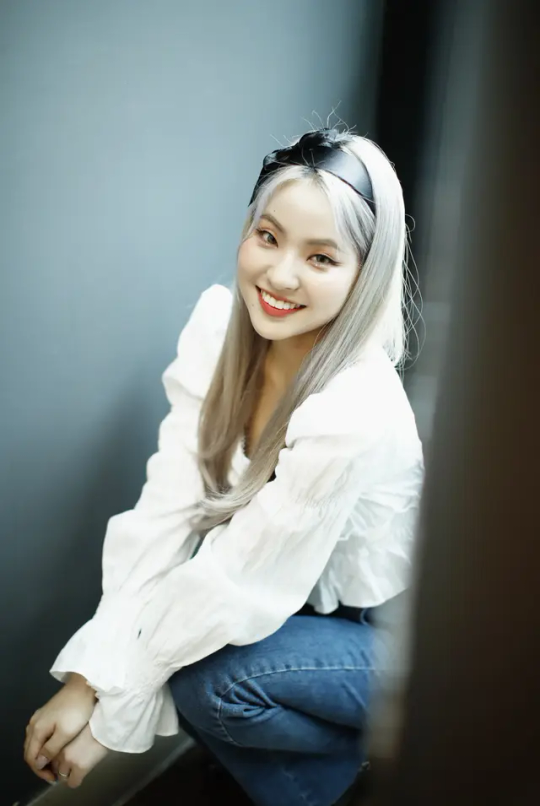
#asian#girls#K-pop#B-day#Eseo#LUNARSOLAR#former#unbelievabel#wonderful#fantastic#great#perfect#nice#hot#cute#sexy#pretty#cool
0 notes
Text
sometimes being a kpop fan means making your own mp3s of their music bc their company is only letting them put it on soundcloud

#haedal in the trenches fr#at least we have muu's new single in 2 days!!!#lunarsolar#eseo lunarsolar#eseo#noh hyunjung#haedal#kpop#oh mae oh my
1 note
·
View note
Text
P1에서 P2까지
[...·e·seo ...·kka·ji]
(indicates the itinerary between two places) from P1 to P2
#에서#eseo#까지#kkaji#itinerary#grammar: adverbs#grammar: all#grammar: particles#from#to#theme: transportation
0 notes
Text
Trapped and Dreaming Freedom


So I've been reading these two webtoons lately about female leads stuck in very toxic and unhealthy relationships (while being aware of it), and I'm loving every second of it!
If you know me, you know I just love a badass cool female lead and I also love seeing characters stuck in very difficult situations and watching how they use their brains and/or skills to get out of it, and both comics excel at these aspects!

First series is "Trapped", a comic about this taxi driver who got tangled by accident with a vampire who develops an obsession with both her and her blood after she manages to outsmart him a couple of times, something that hasn't happened to him in years.
It feels very "Tom and Jerry" with both characters trying to get the upper hand on their relationship, and you would think it would be super one-sided but vampires actually have quite a bit of annoying rules on how they work that severely limit their freedom and our female lead exploits as many of them as she can to make him eat sh*t! It's just glorious!
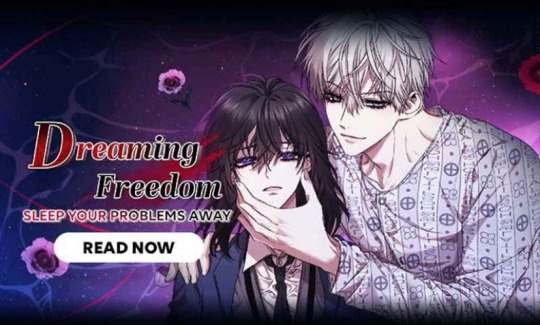
"Dreaming Freedom" is... somehow less dark, and at the same time way darker of a series.
It's not as violent or gory but it deals with more realistic problems that hit closer to home for some like school bullying, abandonment, harassment, family abuse, and so on.
The premise is that our female lead teams up with a guy that has the power to use dreams to affect people in the real world, and they use this ability to get revenge on all the girl's classmates that harassed her, but the more our female lead does that, more the male lead gets obsessed with her and we later find out that he has some serious anger issues making him extremely dangerous.
Our lead basically goes from "I can use him to get payback!" to "Oh my God, I'm the only thing that's keeping this dude under control and away from people!"
It feels like you're being handed a living knife that you just pray won't run out of control or turn itself against you. It's so uncomfortable but at the same time so thrilling!


While I really don't like when unhealthy relationships are glamorized and used to send some kind of "Oh, he's kinda dangerous... But at least he loves you, so it's okay, right?" message, I do like it when the unhealthiness of the relationship is the focus AND is painted as a problem that needs to be fixed.
I like how both female leads always call the male leads on their bs and keep them in check whenever they start going too far, and it's fun to see how they use them whenever they're backed into a corner by the antagonists of the stories.
Also like the themes these series explore, about how when you keep dealing with people that act like monsters you see yourself slowly turning into a monster yourself and start to attract other monsters as well, eventually making you question how far can you go? How far should you go? Can you get back from it? And so on.
But most of all, I like that both series make sure to show that these "bad boys" were their last freaking options. Not the first, not the second, but the very bottom of the barrel. They went to them only after they felt they had no other choices and were sure that nobody else would take their side.
This isn't just "Oh, I went to him because he's a hot bad boy", this is "The world turned its back on me so I'm gonna use the only cards that I have left."
They basically made a deal with their devils and now the fun is watching to see how/if they're gonna get out of it.
This is how I like to see problematic relationships. You don't paint them as something normal or something good, you paint them as a hardship that needs to be dealt with and use it to do clever commentary on the worst aspects of humanity so we can learn how to be better and as a source for good and intense drama to make us worried for the main characters and invested in seeing them get out okay.
392 notes
·
View notes
Photo

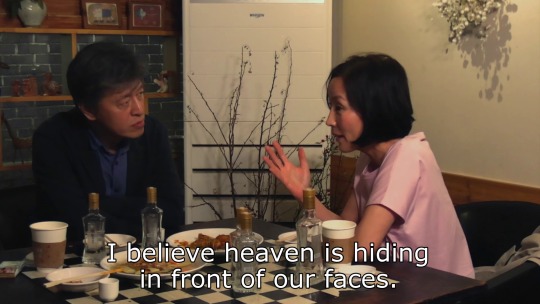
당신 얼굴 앞에서 [In Front of Your Face] (Hong Sang-soo - 2021)
#당신 얼굴 앞에서#In Front of Your Face#South Korea#beauty#Hong Sang-soo#drama film#Hyeyoung Lee#Kwon Hae-hyo#dangsin eolgul ap-eseo#Jo Yoon-hee#Kim Sae-byuk#director#cinematography#domestic realism#relationships#paradise#Cinema of South Korea#actress#passion#lunch#friendship#Korean filmmakers#flirting#Far east cinema#Korean society#romantic drama film#Seoul#believing#amistad#amicizia
27 notes
·
View notes
Text
[ʟɪᴋᴇ ᴀɴᴅ ʀᴇʙʟᴏɢ, ɪꜰ ʏᴏᴜ ʟɪᴋᴇᴅ ɪᴛ]
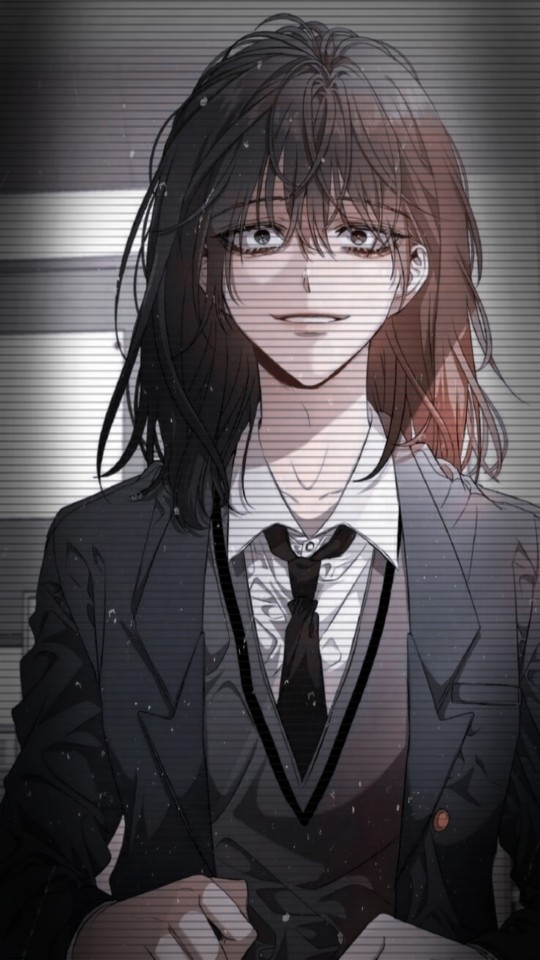
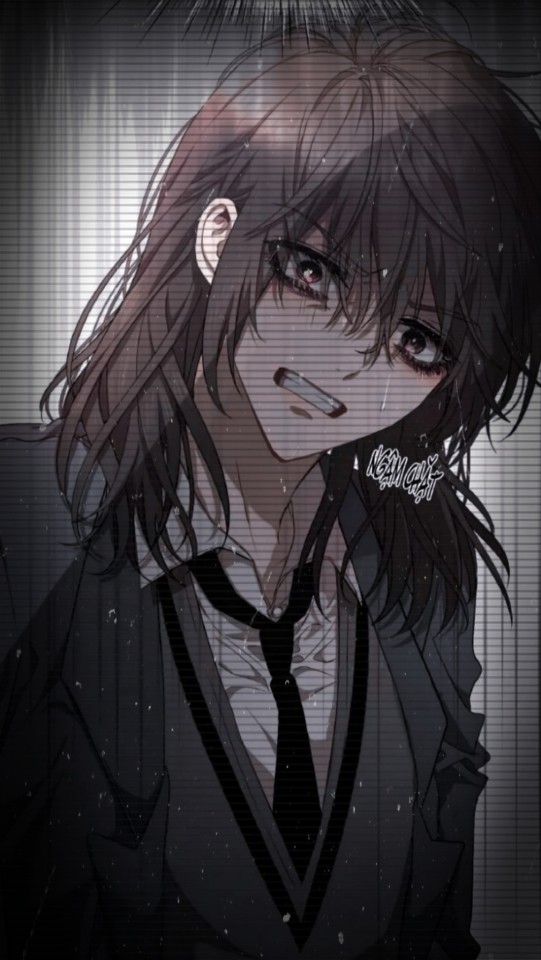

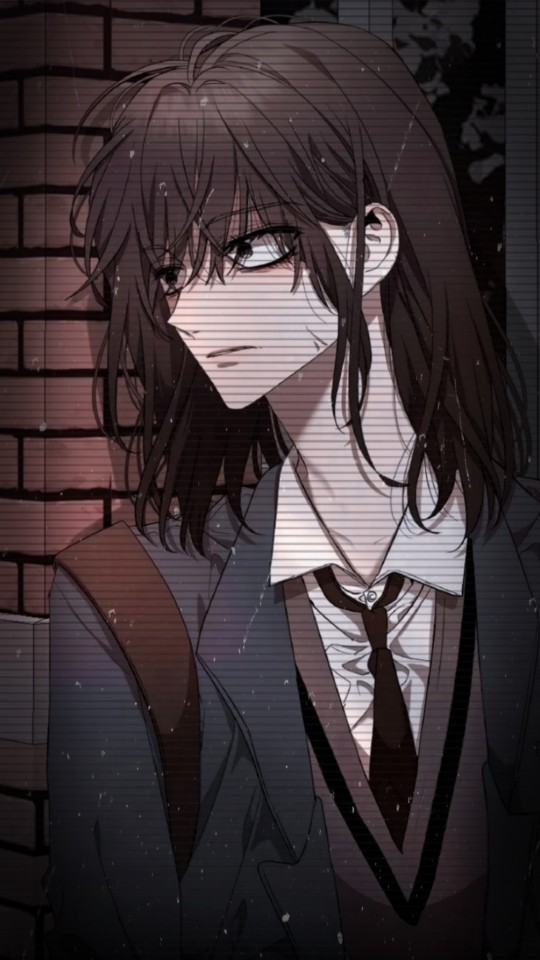
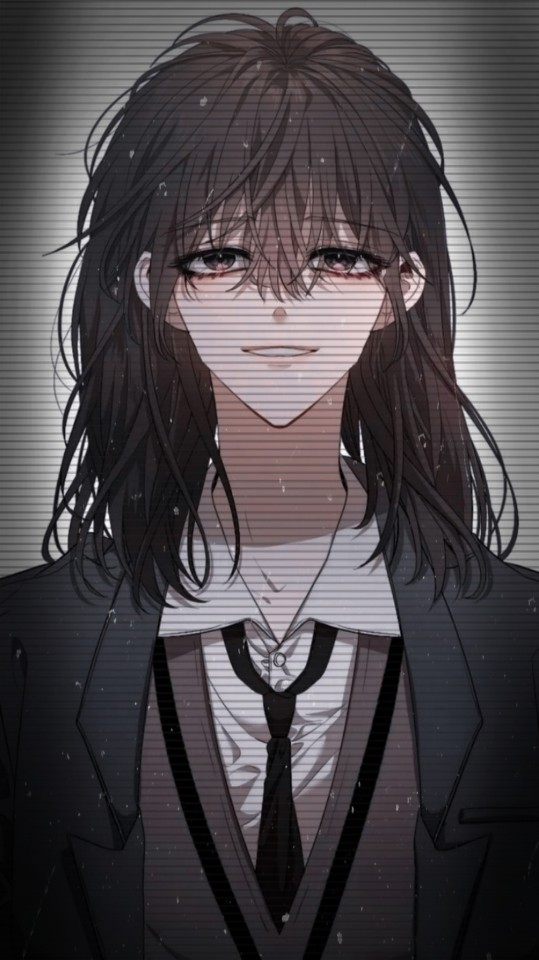
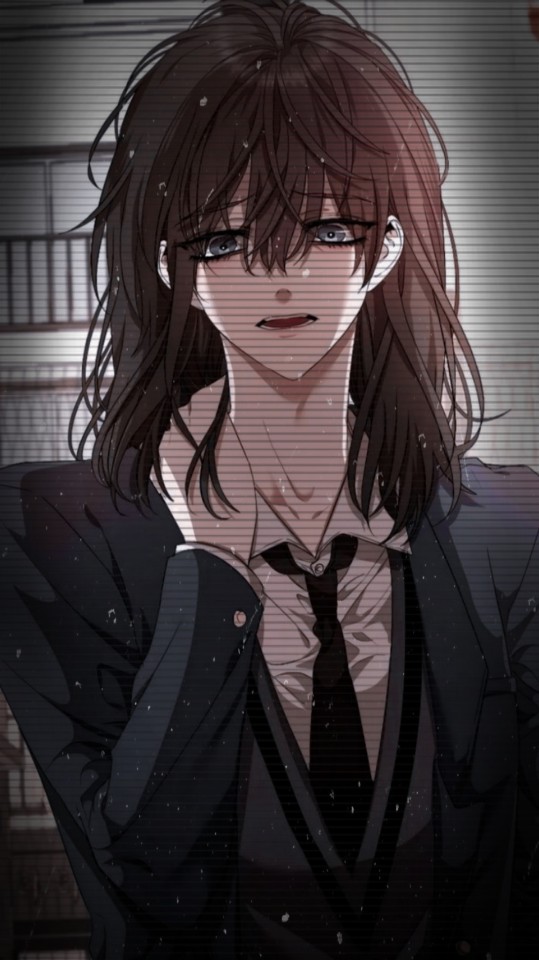

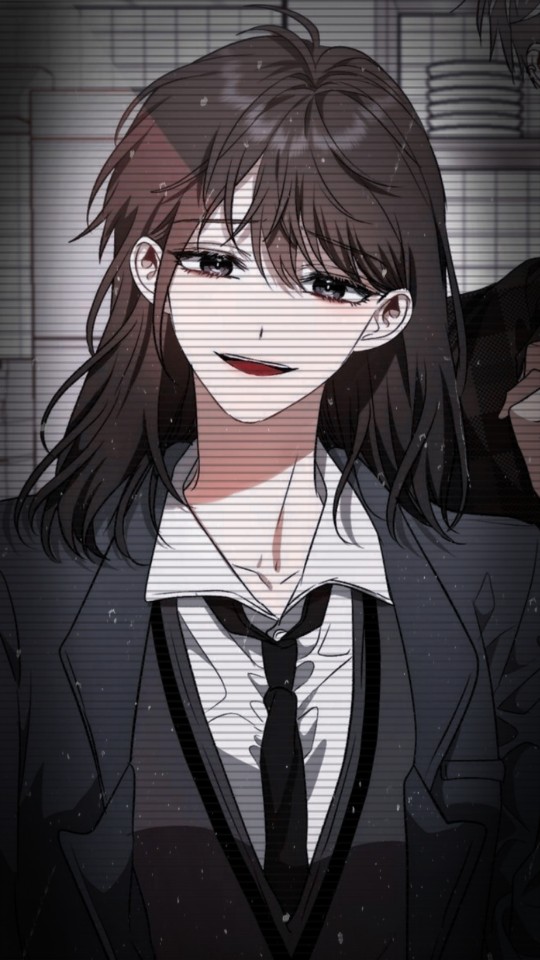

× Free in Dreams
#manhwa#manhwa aesthetic#manhwa edit#manhwa girl#manhwa pics#manhwa pictures#manhwa free in dreams#webtoon icons#webtoon#free in dreams#kkum-eseo jayuro#from dreams to freedom#freedom through dreams#in colour#in color
56 notes
·
View notes
Text

HAREM-ESEO SARANAMGI (2022-2023)
by jeonbun
0 notes
Text
The Princess' Spaceship
Oh, the plot armor is heavy!
The Princess' Spaceship was a something. Definitely the something. But not good.
Ok, so this is mixture of sf "my ship broke and I need to land" with royal isekai manhwa romance.
The deus ex machina is heavy on this one.
The drawing is sometimes good Japanese '80 and sometimes "this person looks like giraffe" and "why their chins/foreheads are so long". But I've seen worse anatomy on Webtoon so I've gained immunity.
The fashion is awful. The feminized knight suit from the cover was the best. Generally man's clothing were inconsistent but much better.
Overall it was silly. But not top notch. If you want good with the similar vibe, better read "Beware the Villainess"
The romance wasn't forced and the pacing was natural. I just miss some emotions in the end. They just coldly decided to marry each other.
Positive point:
Female lead has a scar on her face. But the scar vanishes in the end.
Surprise point:
She got bangs in the end.
Negative point:
Two Mary-Sues.
Overally:
Chaotic.

#The Princess' Spaceship#Gongnyeo-nim-ui Ujuseon#Rofan-eseo Saengjonhagi#Romeo_Tango#Yeongyeong#KakaoPage#공녀님의 우주선 ~로판에서 생존하기~#review#manhwa
0 notes
Text
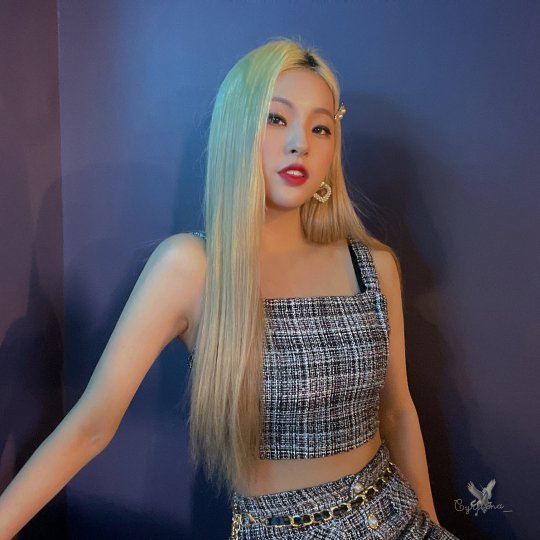
happy B-day 4th March to our cute and beautiful Eseo from LUNARSOLAR here right now !!!!!!!
#asian#girls#K-pop#B-day#Eseo#LUNARSOLAR#unbelievabel#wonderful#great#perfect#fantastic#cool#hot#sexy#pretty#beautiful#breathkiller#incredible#sweet#nice
1 note
·
View note
Text
Y’ALL I’M SOBBING

look at my girls 😭
#self-proclaimed siblings it’s official#lunarsolar#eseo lunarsolar#yuuri lunarsolar#noh hyunjung#tokunaga yuuri#oh mae oh my
0 notes
Text
PLACE에서 V
[...·e·seo ...]
in, at, on, from · (indicates the place where an action occurs; used with a variety of verbs) to V (action) in/at/on/from PLACE
#에서#eseo#at#grammar: adverbs#grammar: all#grammar: particles#in#on#theme: introduction#theme: location#from
0 notes
Text
50 South Korean proverbs along with their English translations:
오늘 한번이면 족하다. (Oneul hanbeonimyeon joghada.) Translation: Once is enough for today.
산 넘어 산. (San neomeo san.) Translation: Mountain over mountain.
물방아 두들겨 보지 마라. (Mulbang-a dudulgyeo boji mara.) Translation: Don't stir up the water before you check it.
가는 말이 고와야 오는 말이 곱다. (Ganeun mari gowaya oneun mari gopda.) Translation: The word that goes must be good, and the word that comes must be beautiful.
시간은 금이다. (Siganeun geumida.) Translation: Time is gold.
티끌 모아 태산. (Tikkeul moa taesan.) Translation: Gather dust and build a mountain.
고래 싸움에 새우 등 터진다. (Gorae ssawoomae saeu deung teojinda.) Translation: When whales fight, shrimp's back is broken.
호랑이도 제 말하면 온다. (Horangido je malhamyeon onda.) Translation: Even a tiger will come if you call it.
천리 길도 한 걸음부터. (Cheonli gildo han georeumbuteo.) Translation: A journey of a thousand miles begins with a single step.
세 살 버릇 여든까지 간다. (Se sal beoreut yeodeunggaji ganda.) Translation: A habit formed at the age of three will last until the age of eighty.
소 잃고 외양간 고친다. (So irgo oeyanggan gochinda.) Translation: After losing the cow, they repair the cowshed.
호랑이에게 물려가도 정신만 차리면 산다. (Horangiege mullyeogado jeongsinman charimyeon sanda.) Translation: Even if you are bitten by a tiger, as long as you keep your wits about you, you will survive.
백지장도 맞들면 낫다. (Baekjijangdo matdeulmyeon natda.) Translation: It's better to have two heads when dealing with a problem.
오르지 못할 나무는 쳐다 보지도 마라. (Oreugi mot-hal namuneun cheoda bojido mara.) Translation: Don't even bother looking at a tree you can't climb.
꿩 대신 닭. (Kkwong daesin dak.) Translation: A chicken instead of a pheasant.
눈에서 멀어지면 마음도 멀어진다. (Nuneseo meoreojimyeon maeumdo meoreojinda.) Translation: When you grow distant from the eyes, you also grow distant from the heart.
믿는 도끼에 발등 찍힌다. (Mitneun dokgie baldeng jjikinda.) Translation: You get your foot cut off with the axe you believe in.
그림의 떡. (Geurimui tteok.) Translation: A rice cake in a picture.
말 한마디에 천냥 빚을 갚는다. (Mal hanmadie cheonnyang bicceul gapneunda.) Translation: A word can repay a thousand debts.
믿는 자만이 인생을 산다. (Mitneun jaman-i insaeng-eul sanda.) Translation: Only those who believe can live their lives.
백지장도 맞들면 낫다. (Baekjijangdo matdeulmyeon natda.) Translation: Two heads are better than one.
천 리 길도 한 걸음부터. (Cheon ri gildo han georeumbuteo.) Translation: Even a journey of a thousand miles begins with a single step.
개천에서 용 난다. (Gaecheonsae-yoong nanda.) Translation: A dragon is born from a small stream.
팔보 보듬어 주면 자신도 굳다. (Palbo bodeumeo jumyeon jasindo gutda.) Translation: If you help others, you will also become stronger.
효도는 또래에게서 시작된다. (Hyodo-neun ttorae-eseo sijakdoenda.) Translation: Filial piety begins with one's peers.
손바닥으로 하늘을 가리려 한다. (Sonbadageuro haneureul gariryeo handa.) Translation: Trying to cover the sky with one's palm.
작은 구멍으로 물이 샌다. (Jageun gumeong-euro muri saenda.) Translation: Water leaks through a small hole.
콩 심은 데 콩 난다. (Kong sim-eun de kong nanda.) Translation: What you sow is what you reap.
거미줄에 걸리는 개미. (Geomijure geollineun gaemi.) Translation: An ant caught in a spider's web.
호랑이는 죽어서 가죽을 남기고, 사람은 죽어서 이름을 남긴다. (Horangineun jugeoseo gajug-eul namgigo, salam-eun jugeoseo ileum-eul namgin-da.) Translation: A tiger dies and leaves its skin, a person dies and leaves their name.
말 한마디에 천냥 빚을 갚는다. (Mal hanmadie cheonnyang bicceul gapneunda.) Translation: A word can repay a thousand debts.
천리 길도 한 걸음부터. (Cheonli gildo han georeumbuteo.) Translation: A journey of a thousand miles begins with a single step.
백지장도 맞들면 낫다. (Baekjijangdo matdeulmyeon natda.) Translation: Two heads are better than one.
호랑이에게 물려가도 정신만 차리면 산다. (Horangiege mullyeogado jeongsinman charimyeon sanda.) Translation: Even if you are bitten by a tiger, as long as you keep your wits about you, you will survive.
못난이 별에도 빛이 있다. (Motnani byeoredo bich-i itda.) Translation: Even a dim star shines.
고생 끝에 낙이 온다. (Gosaeng kkeut-e nak-i onda.) Translation: After hardship comes happiness.
말보다는 실천을 하라. (Malbodaneun silcheoneul hara.) Translation: Act rather than speak.
가는 날이 장날이다. (Ganeun nari jangnari da.) Translation: The day you plan something is the day things go wrong.
꿩 대신 닭. (Kkwong daesin dak.) Translation: A chicken instead of a pheasant.
비온 뒤에 땅이 굳는다. (Bion dwie dang-i gutneunda.) Translation: After rain, the ground hardens.
돌다리도 두들겨 보고 건너라. (Doldali-do dudeulgyeo bogo geonneora.) Translation: Tap even on a stone bridge before crossing.
말 한마디에 천냥 빚을 갚는다. (Mal hanmadie cheonnyang bicceul gapneunda.) Translation: A word can repay a thousand debts.
남의 떡이 커보인다. (Nam-ui tteog-i keoboin-da.) Translation: Another person's rice cake looks bigger.
대기만성. (Daegimanseong.) Translation: Patience is a virtue.
나무에 베인 구멍은 나무로 막는다. (Namue bein gumeong-eun namuro makneunda.) Translation: A hole made in a tree is filled with a tree.
가는 말이 고와야 오는 말이 곱다. (Ganeun mari gowaya oneun mari gopda.) Translation: The word that goes must be good, and the word that comes must be beautiful.
가재는 게 편이다. (Gajae-neun ge pyeonida.) Translation: To catch a crab, you need to be patient.
오르지 못할 나무는 쳐다 보지도 마라. (Oreugi mot-hal namuneun cheoda bojido mara.) Translation: Don't even bother looking at a tree you can't climb.
먹보다는 배우라. (Meokbodaneun baeura.) Translation: Learn rather than eat.
입이 가볍다. (Ipi gabyeobda.) Translation: Loose lips.
#South Korean proverbs#Wisdom#Quotes#Inspirational#Life lessons#Cultural wisdom#Traditional wisdom#Korean culture#Philosophy#Folk sayings#today on tumblr#deep thoughts
7 notes
·
View notes
Text

Which Is Harder Korean or Japanese?
My BACKGROUND:
I have been studying Korean for almost 6 years now and I recently started studying Japanese earlier this year - about 6 months ago. This post will just be me comparing the 2 languages and pointing out their similarities. The actual answer of which is harder or which is easier is for you to come up with and I also think it depends on your background - for example your native language or other languages you know well, which one you learn first, how much you have learned, etc. I know some people that have learned Japanese that find Korean hard and I know Korean learners who find Japanese hard or vice versa they find it easier.
Disclaimer: It's kind of difficult to add audio to all of this, so I'll leave a link to the Instagram post I made with all the audio.
SIMILARITY #1 - Sentence Structure
Japanese & Korean have the exact same sentence structure. Instead of me having to take time to learn it I was able to skip over that, because I'm already used to it in Korean.
The General Structure (which is sometimes more flexible than this) :
Who | When | Where | What | How | Verb
Example:
저는 오늘밤에 지수의 집에 영화를 보고 싶어요
私は今晩ジスの家に映画を見たいです。
I want to watch a movie at Jisoo’s house tonight.
저는 - 私は = I
오늘밤 - 今晩 = tonight
지수의 집에 - ジスの家に = at Jisoo's house
영화를 - 映画を = movie
보(다) - 見(る) = to watch
고 싶다 - たい = want to
(어)요 - です
SIMILARITY #2 - Numbers
You make numbers in Japanese the same way as in Korean. As long as you know the first 10 numbers, the rest become easy. Also some of the numbers even sound alike, making them easier to memorize. A major difference is that Korean has 2 number systems - one that’s Korean based and another that comes from Chinese. We’ll look at the Chinese one here - sino numbers.
(il) 일 - いち (ichi) = 1
(ee) 이 - に (ni) = 2
(sam) 삼 - さん (san) = 3
(sa) 사 - よん (yon) = 4
(o) 오 - ご (go) = 5
(yuk) 육 - ろく (roku) = 6
(chil) 칠 - なな / しち (nana/shichi) = 7
(pal) 팔 - はち (hachi) = 8
(gu) 구 - く / きゅう (ku/ kyuu) = 9
(ship) 십 - じゅう (jyuu) = 10
(shipil) 십일 - じゅういち (jyuuichi) = 11 (10 + 1)
(shipo)십오 - じゅうご (jyuugo) = 12
(eeship) 이십 - にじゅう (nijyuu) = 20 (2 x 10)
(samship) 삼십 - さんじゅう (sanjyuu) = 30
(gushipo) 구십오 - きゅうじゅうご (kyuujyuugo) = 95 (90 + 5)
(baek) 백 - ひゃく(hyaku) = 100
…and so on and so forth
This also goes for ages and telling the time. Both languages follow the same structure for this too.
AGE -
Basically just attaching (sal) 살 / さい (sai) = Age to the number
19 years old
(yeolahop sal) 19살 (Korean uses different number system here but it’s still 10 + 9)
(jūkyūsai) 19歳
TIME
Native Korean Number + O'clock/Hour + Sino Number + Minute
9:10 o'clock
아홉 + 시 + 십 + 분
く + 時 (じ) + じゅう + ぶん
SIMILARITY #3 - Particles
It seems like the same particles in Japanese are essentially the same as Korean. They have topic marker, object marker, time/location-marking particle, etc. There might be some unique ones for each language - like I said I’m a beginner in Japanese and probably haven’t come across it yet. Here's a decently sized list to of them that I noticed off the bat.
(eun/neun) 은/는 > は (wa) - topic marker
(ee/ga) 이/가 > が (ka) - subject marker
(eul/reul) 을/를 > を (wo) - object marker
(eh) 에 > に (ni) - time/location marking particle
(eseo) 에서 > で (de) - doing action at location
(ui) 의 > の (no) - possession particle (..'s)
(uro) (으)로 > で (de) - a means of doing something
(uro) (으)로 > へ (e) - to, towards
(buteo/kaji)에서/부터-까지 > から/まで (kara/made) - from/since-until
(mada) 마다 > まい (mai) - every, each
(to) 도 > も(mo) - also, too
(gwa/wa) 과/와/이랑/하고 (there are many ways to say and in Korean) > と (to) - and
(ina) (이)나 > や (ya) - and; or
(ji/jiyo/jyo) 지/지요 (죠) > ね (ne) - right?
(ege/hante) 에게 (한테) - に (ni) - to, from
(man) 만 > だけ (dake) - only
I noticed that most of the time these particles function the exact same, however there are some instances in which they cannot be used the same way in both languages. For example, sometimes は(topic particle) is used instead of が (subject particle) when in Korean you’d use 이/가 (subject particle) instead.
Example:
where is the bathroom?
화장실이 어디예요?
トイレはどこですか。
*if we followed my list above word for word and used the Japanese example and translated to Korean it would become: 화장실은 어디예요? which doesn’t sound as natural and may be seen as “wrong”. トイレがどこですか would probably have the same affect as the Korean sentence for reference.
Of course you must learn the rules in each language of when a certain particle must be used and not just look at this list and apply it to both languages as if it’s a “one size fits all” kind of thing.
SIMILARITY #4
I won’t go into much detail, because there are hundreds of words between these languages that are pronounced similarly or the same and share the same meanings. I made 2 other posts on it in the past.
EXAMPLES:
(gajoku) 가족 = 家族 - かぞ (kazoku) = family
(junbi) 준비 = 準備 - じゆんび (jun'bi) = prepare
(sajin) 사진 = 写真 - しゃしん (shashin) = picture
(dosogwan) 도서관 = 図書館 - としよがん (toshokan) = library
(byongwon) 병원 = 病院 - びょういん (byōin’) = hospital
WHICH IS HARDER / EASIER:
One thing I must say is that hard and easy are very subjective, and when I rank these they are on a comparative scale - for instance compared to Korean conjugating is hard in Japanese or compared to Japanese learning the Korean alphabet is very easy. But both of them have harder and easier parts in their own way, because learning languages is not a straight line to the finish.
My personal rankings from 1-10, feel free to rank them yourself in the comments
Korean (4) vs Japanese (6) - alphabet
Korean (3) vs Japanese (6) - conjugating verbs
Korean (8) vs Japanese (7) - grammar
Korean (5) vs Japanese (9) - reading
Korean (8) vs Japanese (6) - listening
Korean (7) vs Japanese (10) - vocabulary
Korean (2) vs Japanese (8) - writing
Korean (7) vs Japanese (6) - speaking
FAQ? :
💥Does knowing Korean make learning Japanese easier?
I'm not fluent in Korean or Japanese, but I am at a high enough level that I can give a bit of my experience on this topic. I've only been studying Japanese for about 6 months now. My answer is Yes and No. Yes, because certain concepts are easier to grasp and the many similarities. No, because it’s still an entirely different language with many other rules that differ from Korean.
20 notes
·
View notes